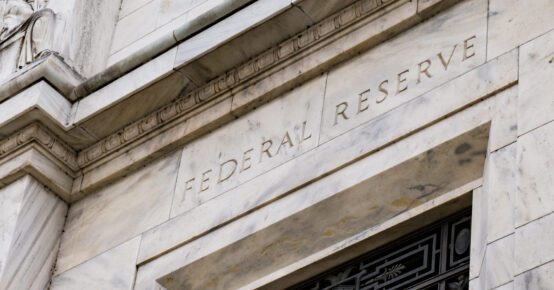We’ve had a rollercoaster month with markets swinging wildly and events moving so quickly that previous drafts of my newsletter have been out of date before I’ve had time to send it.
Don’t fight the Fed
The global macro environment continues to be dominated by US interest rates. The Federal Reserve Bank continues to prioritise the fight against inflation by aggressively raising interest rates. This month, the Fed has raised rates by 75 basis points for the third consecutive month. It is a policy that has drained liquidity from the world markets and depressed asset prices across the board.
Federal Reserve Chairman Jerome Powell acknowledges that the policy is causing pain but insists it is essential to get inflation under control and has indicated that the Fed will continue to stay the course.
The policy has caused the dollar’s value to soar against all major currencies, and has causedother central banks to raise their rates to keep pace.
It will not be welcome news, but the reality is that until the Fed pivots, financial markets are likely to remain depressed.
The UK mini-budget and BoE intervention
On 23 September, the new UK Chancellor, Kwasi Kwarteng, announced an emergency Mini-Budget in which he set out policies to tackle soaring energy costs and inflation. The statement, which included a controversial cut in the highest income tax rate, unleashed a political storm and sent the pound sliding close to dollar parity. The Bank of England was forced to intervene and buy £65bn of government bonds to stop the slide with the pledge of further purchases if required. Critics of the government policy point to the tension caused by the fiscal loosening of the tax cuts and monetary tightening through interest rate rises which the bank has been pursuing.
The situation remains on a political and economic knife edge.
Devastation in Florida
Hurricane Ian, a Category 4 hurricane, was one of the most powerful ever to make landfall in the US. The storm left devastation in its wake, destroying homes, infrastructure and much of the state’s orange crop. Damages and economic losses are forecast to reach as high as $70bn, making it one of the most costly storms in US history. The government is playing down fears that the devastation will increase oil and food prices in the US and President Biden has warned oil companies not to raise prices.
Portfolios
Despite the poor macro environment, many companies continue to report strong earnings figures. In the second quarter, European companies posted earnings growth of 28% from a year ago, demonstrating that despite the downturn, many investments still maintain key fundamentals and underlying strength.
Pressure on portfolio values will likely remain until the Fed pivots from its policy of monetary tightening. We know it is tough on investors and we continue to monitor the situation closely to manage risk to client portfolios accordingly. If you are concerned, please don’t hesitate to book a call with Michele or me to discuss your personal situation.
Warmest wishes,

Senior Investment Strategist
Michele Carby Practice – Holborn Assets












